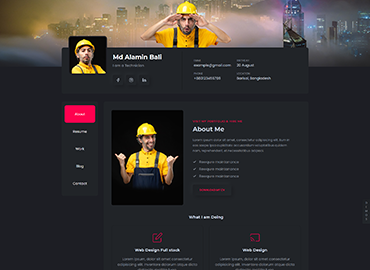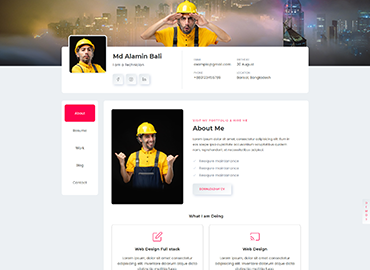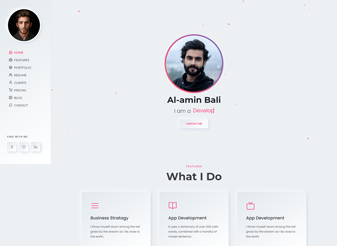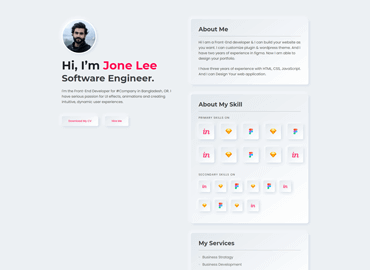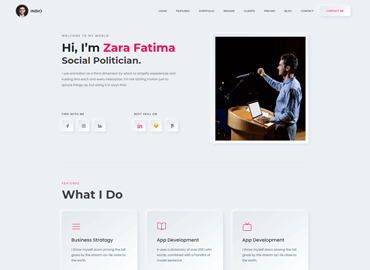A web application that maintains its functionality as the volume of users, data, or transactions increases is said to be scalable. Your app is not scalable if it functions flawlessly for 100 users but crashes at 1,000. Scalability is as crucial to long-term success as functionality or design.
1. Start with a Solid Architecture
- To ensure that every component of the application functions independently, use a modular architecture.
- Use microservices whenever you can. This enables you to divide your application into more manageable services that can grow independently.
- Depending on the needs of your project, pick the appropriate frameworks and libraries.
- A well-designed building facilitates expansion and lessens issues down the road.
2. Use Cloud Infrastructure
In relation to cloud hosting:
- When traffic increases, it’s simple to add additional servers.
- Only the amount you use is charged.
- Features that help handle unexpected spikes in consumption include load balancing and automated scaling.
- Cloud infrastructure is essential for scalability for both small startups and large corporations.
3. Optimize Your Database
- To speed up queries, use indexes.
- Select the appropriate database type: NoSQL for unstructured or large volumes of data, and SQL for structured data.
- When working with really large datasets, use replication or database sharding.
- Keep an eye on database performance on a regular basis and eliminate any unneeded data.
Your app will be able to accommodate growth without slowing down if your database is optimized.
4. Load Balancing is Key
This issue is resolved by load balancing, which divides traffic across several servers. Customers move more quickly when the burden is shared, much like when there are several cash counters at a supermarket.
Well-known load balancers like NGINX, HAProxy, or cloud-based solutions can improve the speed and dependability of your application.
5. Cache Frequently Used Data
- Make use of in-memory caching programs such as Memcached or Redis.
- Cache static files with a Content Delivery Network (CDN), such as CSS, JavaScript, and pictures.
- When feasible, cache the results to cut down on pointless API queries.
- Caching improves user speed and reduces server burden.
6. Write Efficient Code
- Keep things simple and tiny.
- Steer clear of repetitive or duplicate code.
- If at all possible, program asynchronously.
- Always use a lot of data while testing your code.
Always keep in mind that “clean code today saves problems tomorrow.”
7. Use Asynchronous Processing
- jobs in the background using programs like Celery or RabbitMQ.
- Queue systems that enable independent task processing.
This maintains your app’s responsiveness even when it loads slowly.
8. Monitor and Test Regularly
- Make use of monitoring technologies such as Grafana, Datadog, or New Relic.
- Test your app’s load to see how it responds to pressure.
- Monitor error logs, server response times, and sluggish queries.
Frequent testing guarantees that you identify issues before your users do.
9. Security Should Not Be Ignored
- Encrypting data with HTTPS.
- Putting role-based access restriction into practice.
- Maintaining the updates for your libraries, plugins, and software.
- Defending against frequent threats like DDoS and SQL injection.
Scalability and security are closely related.
10. Plan for Future Growth
- Consider flexibility when building.
- From the start, pick scalable technology.
- As your company expands, keep your codebase and infrastructure up to date.
Your web application will be prepared for the future if you plan ahead.
Conclusion
Although creating a scalable web application may seem difficult, it is possible with the correct strategy. You can develop apps that expand with your company by concentrating on architecture, cloud infrastructure, databases, load balancing, caching, clean code, and frequent monitoring.
As the best web developer in India, I’ve witnessed firsthand how scalability turns an insignificant concept into a profitable product. These pointers will take you in the right direction, whether you’re beginning a new project or having trouble growing your current app.
Building scalable, secure, and high-performing online apps is my area of expertise. My name is Neeraj Kaushal. Please get in touch with me if you need expert assistance making your application scalable.
👉 Get in touch for collaboration and consultation.

